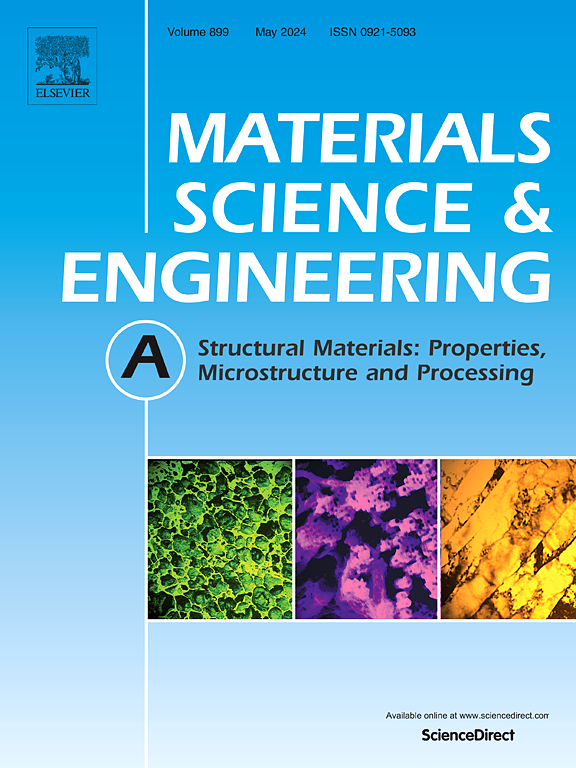The influence of γ′ sub/super solvus on the microstructural characteristics and deformation mechanisms during the high-temperature deformation process of Ni-Cr based superalloy
IF 6.1
2区 材料科学
Q1 MATERIALS SCIENCE, MULTIDISCIPLINARY
引用次数: 0
Abstract
The precipitate is a microscopic structure that cannot be ignored in Ni-based superalloys. During the thermal deformation process, due to the coupled effects of precipitates, high temperature, and applied stress, the presence of precipitates can influence the evolution of microstructure and the transition of deformation mechanisms. This study systematically investigates the thermal deformation behavior of Ni-Cr based superalloy in γ′ sub-solvus (containing precipitates) and γ′ super-solvus (without precipitates) states at different strain rates, further elucidating the impact of γ′ precipitates on the microstructural evolution of Ni-Cr based superalloy. The results indicate that deformation in the γ′ sub-solvus state activates high-density planar slip dislocations, resulting in higher energy storage. At high strain rates (>0.1 s−1), the pinning effect of the precipitates slows down the migration of grain boundaries, thereby inhibiting the growth of recrystallization. Furthermore, at high strain rates, the uneven deformation of the matrix results in higher dislocation density and energy within the alloy, leading to a tailing effect of the γ′ precipitates. In γ′ sub-solvus state, its recrystallization mechanism is discontinuous dynamic recrystallization, which is related to the nucleation stimulated by precipitates. In γ′ super-solvus state, discontinuous dynamic recrystallization is the primary grain refinement mechanism, while continuous dynamic recrystallization serves as a secondary mechanism. This work may provide a theoretical basis for the microstructure design and mechanism exploration in the hot deformation process of γ′-strengthened alloys.
求助全文
约1分钟内获得全文
求助全文
来源期刊

Materials Science and Engineering: A
工程技术-材料科学:综合
CiteScore
11.50
自引率
15.60%
发文量
1811
审稿时长
31 days
期刊介绍:
Materials Science and Engineering A provides an international medium for the publication of theoretical and experimental studies related to the load-bearing capacity of materials as influenced by their basic properties, processing history, microstructure and operating environment. Appropriate submissions to Materials Science and Engineering A should include scientific and/or engineering factors which affect the microstructure - strength relationships of materials and report the changes to mechanical behavior.
 求助内容:
求助内容: 应助结果提醒方式:
应助结果提醒方式:


